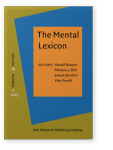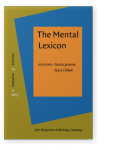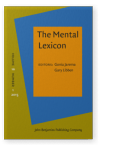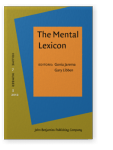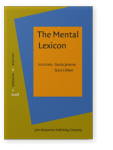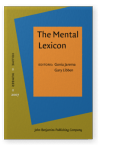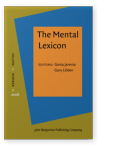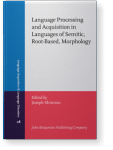Iris Berent
List of John Benjamins publications for which Iris Berent plays a role.
Journal
Articles
2017 The unbounded productivity of (sign) language: Evidence from the Stroop task The Mental Lexicon 12:3, pp. 309–341 | Article
Unbounded productivity is a hallmark of linguistic competence. Here, we asked whether this capacity automatically applies to signs. Participants saw video-clips of novel signs in American Sign Language (ASL) produced by a signer whose body appeared in a monochromatic color, and they quickly… read more
2015 On the sonority levels of fricatives and stops The Mental Lexicon 10:1, pp. 88–132 | Article
Across languages, stop-sonorant onsets are preferred to fricative-sonorant ones (e.g., pna ≻ fna), suggesting that stop-initial onsets are better formed. Here, we ask whether this preference is active in the linguistic competence of English speakers. To address this question, we compare stop- and… read more
2012 Universal linguistic pressures and their solutions: Evidence from Spanish The Mental Lexicon 7:3, pp. 275–305 | Article
Do speakers possess universal linguistic restrictions on the sound structure of their language? We examine this question by investigating the restrictions on onset clusters (e.g., bl in block). Cross-linguistic comparisons suggest that certain onset clusters are universally preferred: Onsets like… read more
2008 Compound formation is constrained by morphology: A reply to Seidenberg, MacDonald & Haskell The Mental Lexicon 3:2, pp. 176–187 | Article
Why do compounds containing regular plurals, such as rats-infested, sound so much worse than corresponding compounds containing irregular plurals, such as mice-infested? Berent and Pinker (2007) reported five experiments showing that this theoretically important effect hinges on the morphological… read more
2007 The dislike of regular plurals in compounds: Phonological familiarity or morphological constraint? The Mental Lexicon 2:2, pp. 129–181 | Article
English speakers disfavor compounds containing regular plurals compared to irregular ones. Haskell, MacDonald and Seidenberg (2003) attribute this phenomenon to the rarity of compounds containing words with the phonological properties of regular plurals. Five experiments test this proposal.… read more
2006 The autonomous computation of morpho-phonological structure in reading: Evidence from the Stroop task The Mental Lexicon 1:2, pp. 201–230 | Article
Is morphological decomposition automatic? To address this question, we examine whether Hebrew readers decompose morphologically complex words when reading is not required, in the Stroop task. Morphological decomposition is assessed using two markers. One marker examines whether color-naming is… read more
2003 11. What is a root? Evidence from the obligatory contour principle Language Processing and Acquisition in Languages of Semitic, Root-Based, Morphology, Shimron, Joseph (ed.), pp. 201–222 | Chapter
